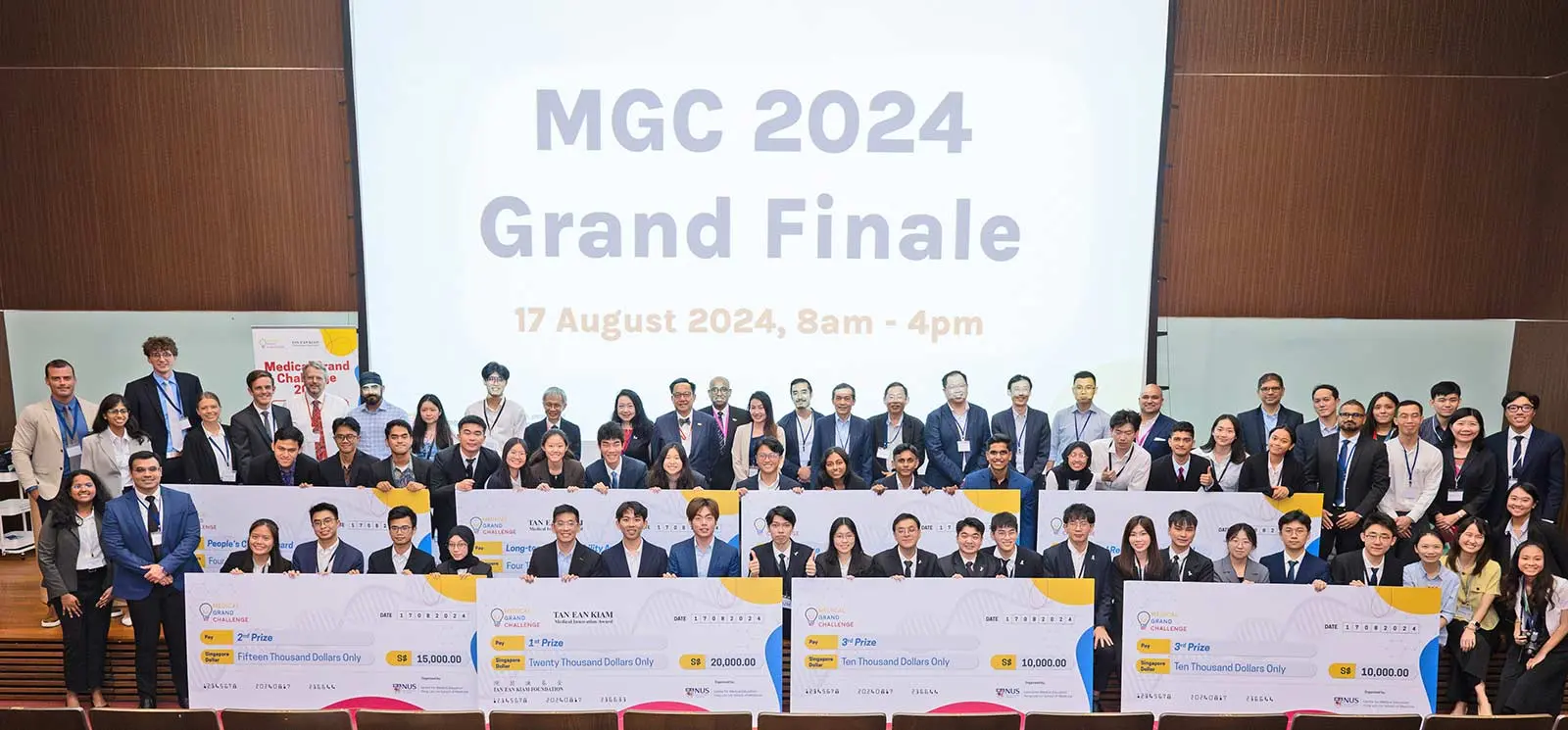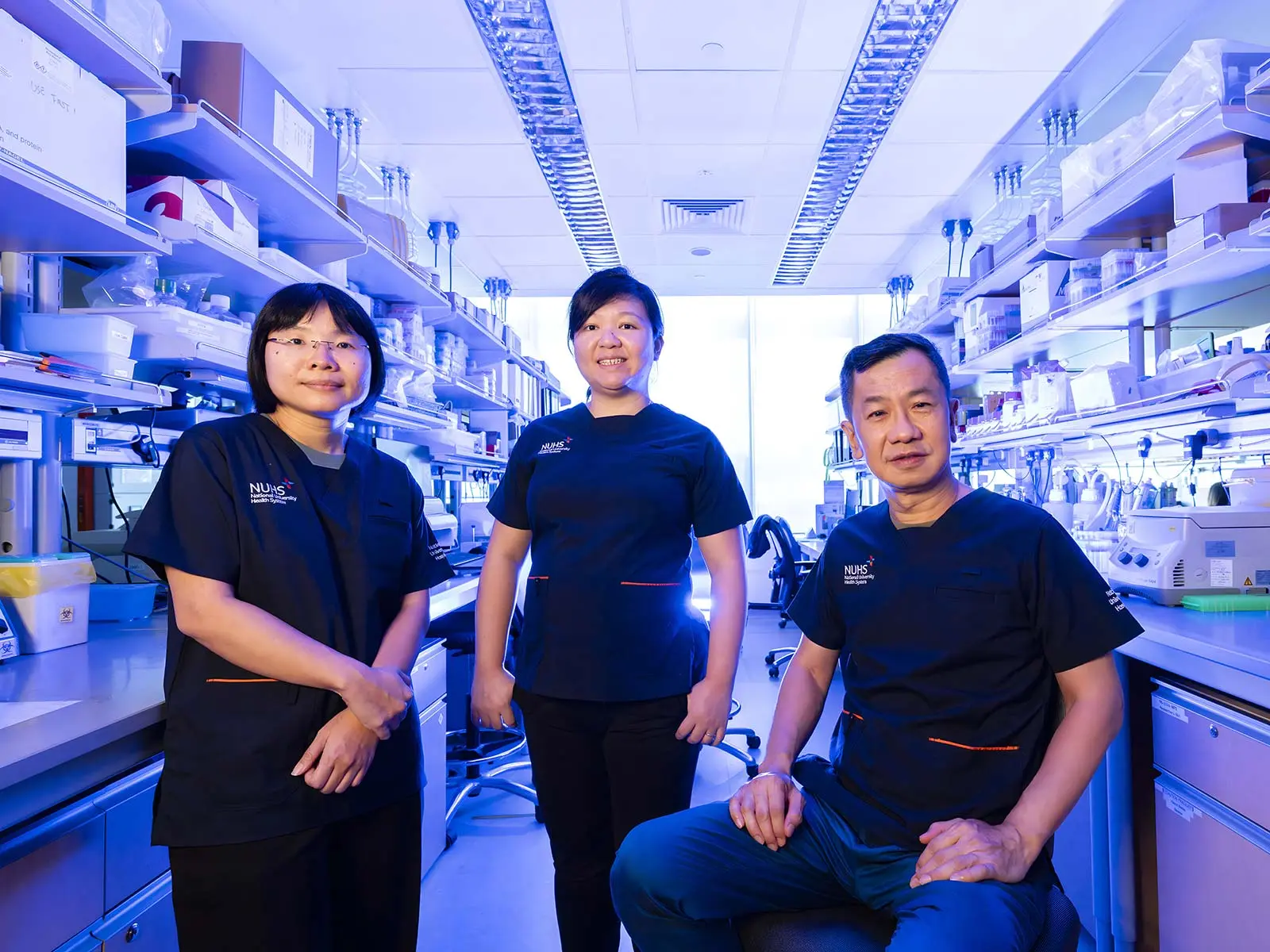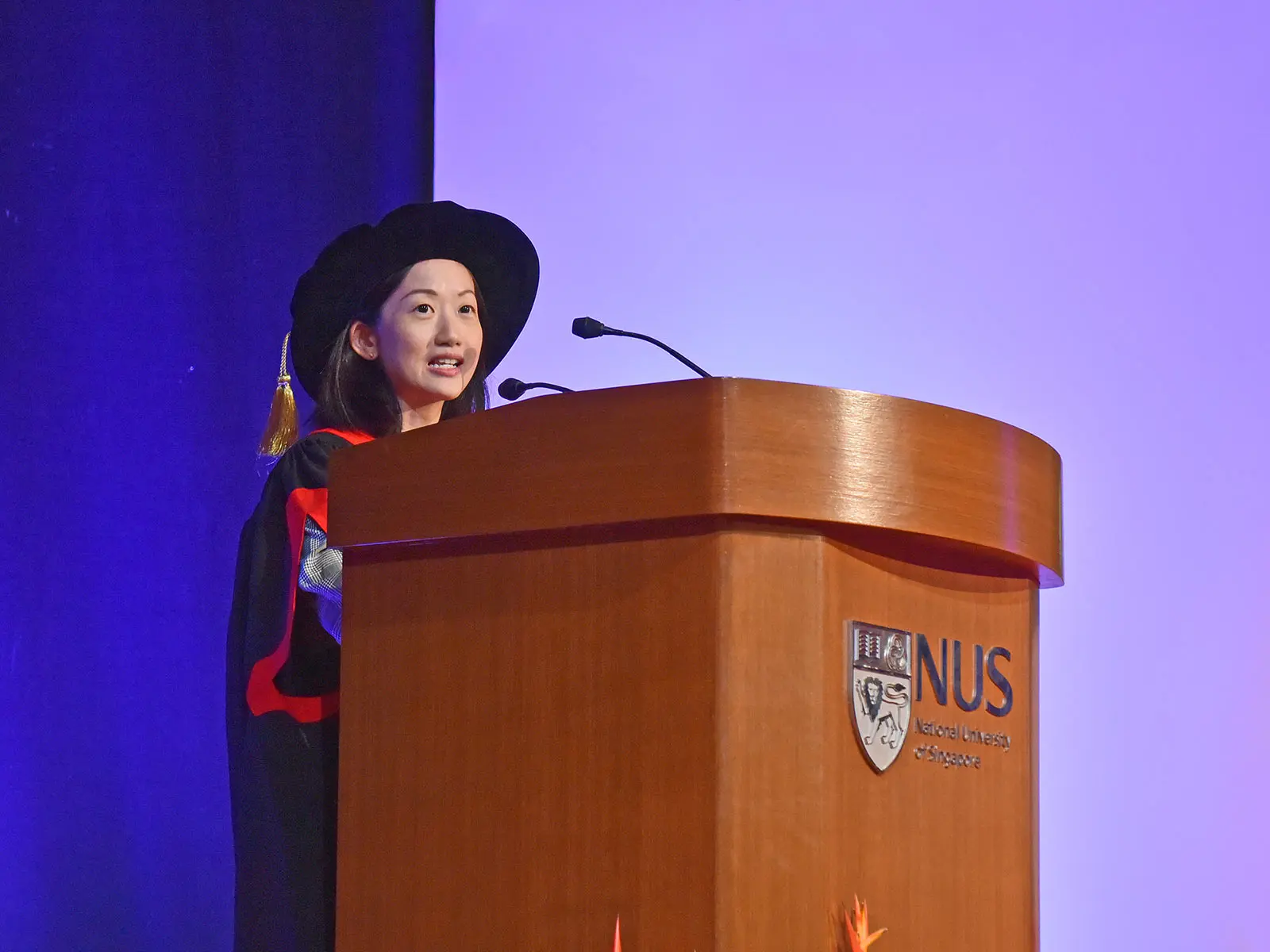
Issue 52
Nov 2024
IN VIVO

A machine learning software that allows nurses to efficiently and remotely monitor outpatient stoma cases while providing personalised care advice, and a digital intervention where women can find personalised, comprehensive and accessible mental healthcare won first place in the Nascent and Open categories respectively at the Medical Grand Challenge (MGC) Finale 2024, held on 17 August 2024.
Organised by the Centre for Medical Education (CenMED) at the Yong Loo Lin School of Medicine, National University of Singapore (NUS Medicine), this year’s MGC saw the largest number of participating teams since 2017, including first-time participants from China and Thailand.
Team CERVIVAI was awarded the Social Responsibility Award for their project that integrates Visual Inspection with Acetic Acid (VIA) testing and Artificial Intelligence (AI) into one system, to enhance cervical cancer screening accuracy and accessibility for women living in low-resource areas. For their patented technology that prevents bacterial buildup in hospital sink traps, Team Bioshield bagged the Long-Term Sustainability Award.
Garnering the highest number of votes in the voting portal during the Finale, the WiZards received the People’s Choice Award for their one-stop software solution that streamlines occupational health hazard management by focusing on 3 components: hazard detection, hazard reporting and human resources management. These 3 teams walked away with $4,000 each for their efforts.
40
teams from around the world.
MGC 2024 received a bumper crop of submissions this year, with 40 teams from around the world. The event welcomed for the first time 9 teams from China, and 4 teams from Thailand. The competition was also keener, with teams upping the ante from projects devising extremely advanced prototypes from scratch, such as an imaging tool that gives accurate assessments of corneal and limbal blood vessels, a 3-in-2 device strategy to measure intracranial pressure, a microneedle blood tester to identify sexually transmitted diseases in the blood, to an injectable thermosensitive fibroin microspheres hydrogel to treat osteoporosis.
This year’s MGC Finale saw 14 local teams—9 from China, 6 from Indonesia and 4 from Thailand—competing in the Nascent Category. 7 other teams, including 1 from Malaysia vied for top place in the Open Category. An event highlight was a Bench-to-Bedside project demonstration by Team C-Blu from the University of Utah, US, which demonstrated how their innovation won the grand prize at the Bench to Bedside (B2B) competition, a premier healthcare innovation competition organised by the University of Utah Health.
All participating teams presented their novel innovations at a 1 hour closed-door judging session in the morning. Eventually, 16 teams were shortlisted from each of the Nascent and Open category and invited to do a stage pitching before the other competitors and a panel of 17 judges, all highly experienced commercial leaders from various sectors such as business, healthcare, engineering and research.

MGC 2024 winners.
Teams in the Nascent category could explore devising an innovative solution from scratch, while teams in the Open category can choose to conceptualise improvements to enhance the viability and workability of an existing project idea that has been presented previously in other competitions, or work on projects collaboratively with “Tech Mentors”, who are influential and experienced industry experts. Projects are assessed on their business strategy, creativity, design quality and healthcare impact. Throughout the year, the teams attended interdisciplinary boot camps and participated in consultation sessions with their tech mentors who provided guidance and advised them on how best to improve their creations and build on its commercial viability. Each shortlisted team was given 3 minutes to deliver a convincing pitch, and they had to field questions from the judging panel about the viability and sustainability of their product. The Finale marked the culmination of a year-long challenge where shortlisted teams present their projects to a panel of judges, many of whom are influential business leaders in commercial healthcare and design strategy.
Professor Chong Yap Seng, Dean of NUS Medicine, emphasised the need for students to gain exposure to solving real-world problems, and broadening their understanding of the complexities of working with collaborators in other disciplines to arrive at feasible solutions. “Modern-day problems vary in complexity and require a multidisciplinary approach for a viable solution. Healthcare challenges in one country can create a ripple effect in other parts of the world. It is useful for students of today, regardless of where they come from, to recognise the common connections within the global healthcare and medical landscape and be comfortable with initiating collaborative efforts with international counterparts to develop solutions for a common problem. The MGC aims to serve as a platform to instil courage and creativity in driving interdisciplinary collaborations forward and into the future.”
Modern-day problems vary in complexity and require a multidisciplinary approach for a viable solution. Healthcare challenges in one country can create a ripple effect in other parts of the world. It is useful for students of today, regardless of where they come from, to recognise the common connections within the global healthcare and medical landscape and be comfortable with initiating collaborative efforts with international counterparts to develop solutions for a common problem.”
More from this issue



